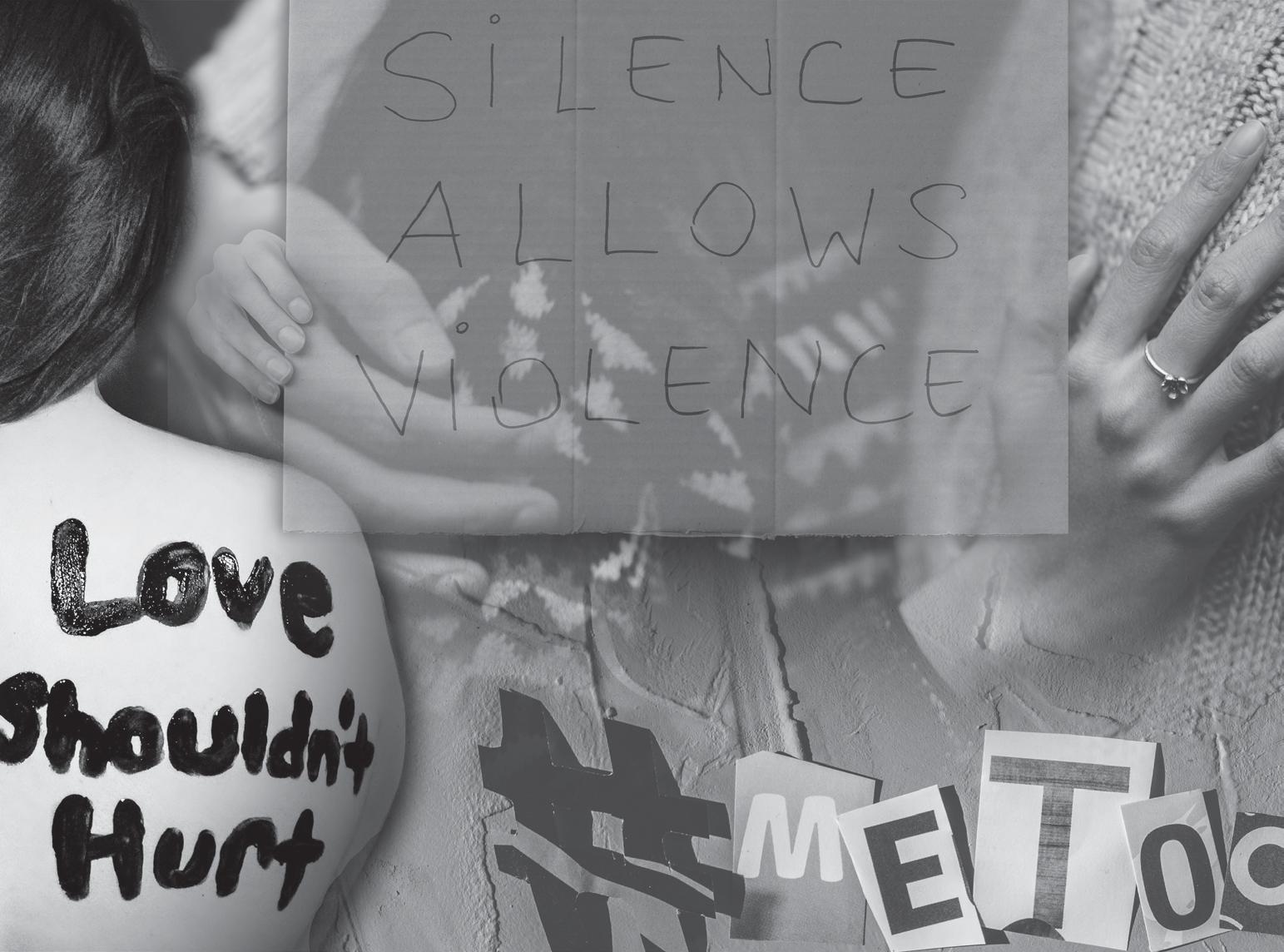
3 minute read
Can I Kiss You?’ event goes virtual
from The Ontarion - 190.3
by The Ontarion
SPORTS & HEALTH
18 | TOM BRADY
Thousands of first year students have taken part in the 'Can I Kiss You?' program organized by Mike Domitrz, which has been a staple of orientation for over 10 years. The program teaches consent in a fun way, emphasizing to ask for permission and respect the answer. CREDIT: UNSPLASH AND PEXELS

Consent and bystander program continues to encourage a culture of respect to reduce sexual violence
TASHA FALCONER
Every fall during O-week, thousands of first year students take part in the ʻCan I Kiss You?ʼ program organized by Mike Domitrz. This program has been at Guelph’s O-week for over 10 years with Domitrz as a leading expert in creating a culture of consent and respect. He started working to reduce sexual violence in the late 1980s after his sister was sexually assaulted.
Sexual violence is a big issue in post-secondary education. In a 2019 survey, Statistics Canada found that 71 per cent of students had witnessed or experienced unwanted sexual behaviour either on or off campus.
With ʻCan I Kiss You?ʼ, Domitrz aims to create a fun program that teaches consent — both asking for permission and respecting the answer.
While the program was virtual this year, Domitrz still engaged with the audience through online participation. Throughout the workshop, Domitrz asked participants to type into the chat box to answer questions and respond to content they found relatable. A couple times throughout the presentation, Domitrz had pre-selected volunteers come on screen and answer his questions in real time.
In the presentation, Domitrz teaches how to foster a “culture of respect” on campus that involves asking for consent, respecting the decision, and stepping in when something is wrong. Domitrz believes these actions should in turn reduce sexual violence on campus. He explained that we are not taught to ask for consent in relationships or in life, but that it’s something we need to do.
He also teaches bystander awareness, noting that it is important to intervene if you suspect someone is being assaulted because “every human being deserves to be treated with a basic level of dignity and respect.”
Creating this culture of respect is very important to reducing incidents of sexual violence. According to Domitrz, sexual assault is near the top of a pyramid of actions of sexual violence; the lower layers of the pyramid are built on disrespect and are a foundation for sexual assault to occur. These lower levels include normalization of violence, such as slut shaming, victim blaming, rape jokes and cat-calling, and removal of autonomy, such as stalking.
Domitrz stresses that words matter. We need to call these actions out for what they are. He noted that often we give watered-down versions of what is happening, such as saying someone is taking advantage of someone else, instead of saying sexual assault is occurring. He believes the words we use make a difference in how people interpret what is happening and how they react to the behaviour.
According to the Government of Canada, UNICEF, and the UN, the COVID-19 pandemic has seen an increase in gender-based violence around the world. So, while the format of the workshop looked different this year, its content and message is perhaps more important than ever.
U of G students can learn more about consent and being an active bystander by checking out the new Sexual Violence Support module on Courselink.
Resources for local women and children whose lives have been affected by violence and abuse are available at:
Guelph-Wellington Women in Crisis: gwwomenincrisis. org/online-resources Guelph-Wellington Action Committee: theactioncommittee. ca/the-facts/about-sexual-assault










